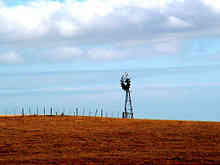This time The Only Truth blog website have a one on one with one of the son of the soil, the all rounder of Xitsonga music, get to know the artist who has an impeccable talent, Mr Mackson Shirinda.
The Only Truth: When did you start your music career and What inspired you
Vazaya: I started my music career in 1998 and was inspired by my father General MD Shirinda. He is a great singer and has spiked zeal for me to want to sing, I wanted to emulate and walk on his foot steps. I also mingled with artists like Matshwa Bemuda whom I liked his music so much, it also kept my dream to be a singer alive.
The Only Truth:Your place of birth
Vazaya: I was born in a village called Makhasa in Malamulele, under the Hosi Maxeleni
The Only Truth: Can you briefly give us your background
Vazaya: I would not say things were rough when I grew up, I had almost everything a child needs that includes the necessary support and guidance. My family encouraged me and my siblings to go to school and learn. I followed the music career because of the the desire and passion instead of everything else.
The Only Truth: how can you describe your music career in detail
Vazaya: like I said I started singing in 1998, we formed a group called miyakayaka na vo makwavo and released two albums. I left the group and worked with penny penny and was playing drums for his Makhwaya albums. I also worked with Gezani Thomas Mzamani where I also played drums and key board. I was also a drummer for Flora and Sunglen when they were recording, in a nutshell I worked with lots of artists. Having played drums to lots of artists, I ended up starting my own thing Producing people like Xindendefu and also people like Minge swikoti Magaza. I have produced almost twenty artists, I have got a mini studio for programming and also work with other people for further production.
The Only Truth: How would you like to be remembered
Vazaya: I want to be remembered as a person who sings songs that empower people with knowledge and teaches them the way of life. Most of my songs talks about family issues and also guide and teach those who are single
The Only Truth: How is it like to work with Rhangani and Dumusani
Vazaya: it is life changing, I have been uplifted from the place I was in the past. I have personally grown up and working with these two guys has changed some of the things in my life.
The Only Truth: Is this your first CD
Vazaya: No, actually it is my 8th, but we can say it is the first because I have twirled the style of singing and the first in my collaboration with Rhangani and Dumusani, and for this reason we call it goal number one.
The Only Truth: Why did you feel it was important to sing about bushiri track no 6
Vazaya: when I walked around people have been talking a lot of things about Bushiri. Some talked good of him while others bad mouthed him. I then asked people who believe in his teachings and they told me a lot of good things about him. I then realized that what people perceive about Bushiri is not true, I then decided to write a song to change people perceptions and to make them realize that judging other people without facts is wrong.
The Only Truth: how do you compare yourself with other artists
Vazaya: Other artists just compose music for dancing with no message what so ever. There is no intent to build the nation nor to educate the public. As much as I make people dance I also share my knowledge in life and educate the public
The Only Truth: Thank you Vazaya for your time
Vazaya: Thanks




